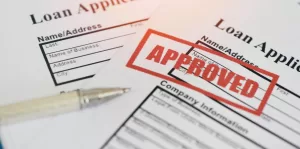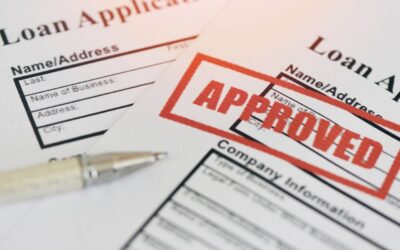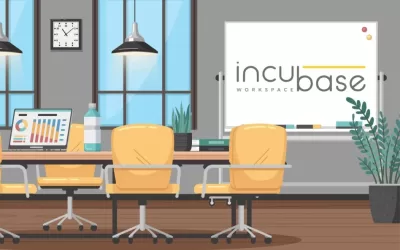Small businesses are the backbone of the U.S. economy, and the 504 loan program administered by the U.S. Small Business Administration (SBA) is a powerful tool aimed at supporting the growth and development of these enterprises. Specifically, the SBA 504 loan is designed to assist small business owners in acquiring fixed assets like real estate, buildings, and machinery at below-market rates, which is vital for both the establishment and expansion of a business. The fundamental goal of the SBA 504 program is not only to provide long-term financing for small businesses but also to promote economic revitalization within communities, particularly those that are economically distressed.
The SBA partners with Certified Development Companies (CDCs),like NSDC, which are nonprofit organizations that operate within specific communities to help finance projects through 504 loans. These projects often play a pivotal role in revitalizing economically distressed areas by stimulating business development, attracting new income, and diversifying local economies. With a maximum loan amount of up to $5 million—and even higher for certain energy-efficient or manufacturing projects—the 504 program can be a catalyst for significant investment in areas that need it most. Importantly, the use of these funds is targeted and strategic, focusing on outcomes that not only benefit the individual businesses but also contribute to broader community development goals.
Key Takeaways
- SBA 504 loans provide crucial support for business growth and acquisition of fixed assets.
- CDC partnerships under the SBA are essential in promoting local economic development.
- Strategic financing through these loans is key to revitalizing economically distressed areas.
Understanding SBA 504 Loans
In this section, we’ll examine the SBA 504 loan, a vital resource for small businesses, particularly focusing on its origins and unique position alongside other SBA loan programs in supporting economic growth.
Origins and Purpose of the 504 Loan Program
The 504 Loan Program, administered by the U.S. Small Business Administration (SBA), is designed to foster economic development within communities. Its primary objective is to provide affordable, long-term financing to small businesses for capital assets such as land and buildings. Through the program, Certified Development Companies (CDCs) partner with lenders to offer loans that promote business growth and job creation.
How CDC/504 Loans Compare to Other SBA Loans
The SBA 504 Loan Program is distinct from other SBA loan offerings:
- SBA 7(a) Loan: While the 7(a) is the SBA’s flagship program offering up to $5 million for a variety of general business purposes, the SBA 504 loan specifically targets major fixed assets that promote business growth and jobs.
- SBA Express Loans: These loans offer a faster turnaround time but lower maximum loan amounts. They are tailored for prompt, smaller-scale financing compared to the larger amounts and targeted uses of 504 loans.
- Equipment Loans: While equipment purchases can be financed using various SBA programs, the 504 loan offers benefits specifically for long-term equipment investment through CDC involvement.
The SBA 504 Loan itself is a tool for business owners to secure financing for fixed assets at below-market interest rates, typically for projects involving the purchase of real estate or heavy machinery. A CDC, which is a nonprofit corporation set up to contribute to the economic development of its community, provides a portion of the financing in a 504 loan transaction, while a third-party lender provides the remainder.
Eligibility and Application Process
We understand the importance of ensuring that small businesses can access the capital they need for growth, especially in areas that require economic revitalization. Therefore, it’s crucial to grasp the SBA 504 Loan’s eligibility criteria and navigate the application steps effectively.
Defining Eligibility Requirements
To be eligible for an SBA 504 loan, a small business must:
- Operate as a for-profit entity in the United States or its possessions.
- Possess a tangible net worth of less than $20 million and an average net income of less than $6.5 million after taxes for the preceding two years.
- Plan to do business in, or undertake a project which will ideally revitalize, a community that is economically distressed.
For us, as business owners, being eligible hinges on our ability to promote business growth and job creation within our communities.
Navigating the Loan Application
The application process for an SBA 504 loan typically involves several critical steps:
- Prepare a Feasible Business Plan: It must demonstrate the potential for job creation or community development.
- Connect with a Certified Development Company (CDC): We are Nevada’s Platinum SBA 504 Lender for the state. Contact us and we’ll walk you through the whole process. We partner with lenders, usually a bank or credit union, to provide up to 40% of the project’s cost.
- Complete the Loan Application: This is done through the CDC. You will need to provide detailed information about your business, management, financial positions, and the specifics of how you plan to use the funds.
- Review and Approval: After submission, the loan package is reviewed by both the CDC and the SBA. If successful, terms are finalized, and the loan is disbursed.
Throughout this process, entrepreneurs should be mindful of their credit history, as it will be a factor in determining loan approval. A solid application and alignment with the SBA 504 program’s mission can pave the way for successful funding and contribute to the revitalization of economically distressed areas.
Financing Terms and Uses
We will explore the specifics of the 504 loan program’s financing options, focusing on loan amounts, interest rates, and permissible uses. This loan is pivotal in supporting small businesses in economically distressed areas by providing them with long-term capital under favorable terms.
Loan Amounts and Interest Rates
Under the SBA 504 loan program, businesses can access long-term, fixed-rate financing. Here are the specifics:
- Maximum loan amounts: Typically up to $5 million, which can extend to $5.5 million for projects that meet certain energy efficiency or manufacturing criteria.
- Interest rates: Set below market rate and remain fixed for the duration of the loan, ensuring predictable payments for borrowers.
The advantages of fixed-rate financing include shielding borrowers from market fluctuations, allowing for long-term planning without the fear of escalating interest costs.
Permissible Uses of Funds
The SBA 504 loan program is designed for the procurement of fixed assets critical to business operations. Here’s a breakdown of how funds can be utilized:
- Real estate: Purchasing land and buildings.
- Construction: Upgrading existing facilities or constructing new ones.
- Machinery: Buying long-term machinery and equipment with a useful life of 10 years.
We take note that the funds are not meant for working capital, inventory, or repaying debt. Emphasizing the commitment to revitalize economically struggling areas, the program facilitates the creation and retention of jobs by securing tangible assets that anchor businesses in local communities.
SBA 504 Loans and Economic Impact
Through the provision of long-term financing for major fixed assets, we see SBA 504 loans as key vehicles for stimulating economic development, particularly in economically distressed areas. By focusing on small businesses, these loans play a pivotal role in both fostering business growth and revitalizing communities.
Supporting Economic Revitalization Business Growth and Job Creation
SBA 504 loans are instrumental in helping for-profit companies acquire the capital needed to expand and modernize. As part of this program, businesses are required to meet specific job creation goals or community development criteria. For instance, a small business obtaining a 504 loan generally must create or retain one job for every $90,000 of funding received. This focus on job creation is no small matter, as public policy aims to bolster the economy, particularly in the wake of challenges like the pandemic.
With $5 million in maximum funding—$5.5 million for manufacturing or certain energy-efficient projects—these loans are sizable enough to have a significant impact:
- Capitalization: Up to $5 million for standard projects; up to $5.5 million for manufacturing
- Job Creation: One job per $90,000 of loan funding
- Economic Relief: Targeted especially post-pandemic to aid recovery
These figures are critical markers in our collective public policy efforts to create over 2 million jobs and provide urgent economic relief.
Renewing Communities Through Investment
Our commitment to community development is furthered through 504 loans as they encourage investment in revitalizing areas that need it most. By directing funds into the purchase and renovation of existing buildings or land, we’re able to see tangible improvements in neighborhood infrastructure and economic vitality.
Here’s a snapshot of how investment priorities are structured:
- Eligible Costs: Include land, buildings, machinery, equipment
- Community Renewal: Triggered by investment in real estate and equipment
Notably, the benefits of this investment go beyond direct economic stimulus by fostering a sense of economic renewal, which can play a critical role in drawing additional private and public sector investment into economically distressed areas.
Frequently Asked Questions
What are the eligibility criteria for businesses applying for an SBA 504 loan?
Eligibility for an SBA 504 loan requires a business to operate for-profit in the United States, have a tangible net worth of less than $20 million, and an average net income of less than $6.5 million after federal income taxes for the preceding two years prior to application. The project being financed must also promote business growth and job creation.
How do SBA 504 loans differ from SBA 7a loans in terms of benefits and limitations?
SBA 504 loans are specifically intended for major fixed asset purchases, such as real estate or equipment, while SBA 7a loans have a broader range of uses including working capital and inventory. Benefits of the 504 program include lower down payments and fixed interest rates, whereas SBA 7a loans offer greater flexibility in terms of loan amount and usage but may have variable rates.
What are the current interest rates and associated fees for SBA 504 loans?
The interest rates for SBA 504 loans are fixed and typically below-market, as they are bonds sold to investors. Fees may include processing fees, servicing fees, and a guarantee fee, and these contribute to the overall cost of the loan but are commonly rolled into the loan principal.
How does a startup qualify for an SBA 504 loan, and what are the special considerations?
Startups less than two years old may qualify for SBA 504 loans but are often subject to special requirements such as a larger equity contribution from the owner, which could be about 15% to 20%. A strong business plan and management experience are important factors in approval for startups.
What types of real estate purchases are eligible for financing through the SBA 504 program?
Financing through the SBA 504 program is eligible for real estate purchases that involve owner-occupied commercial property. This means that the borrower must occupy at least 51% of the property for existing buildings or 60% for new constructions, with plans to occupy a majority of the space over time.




